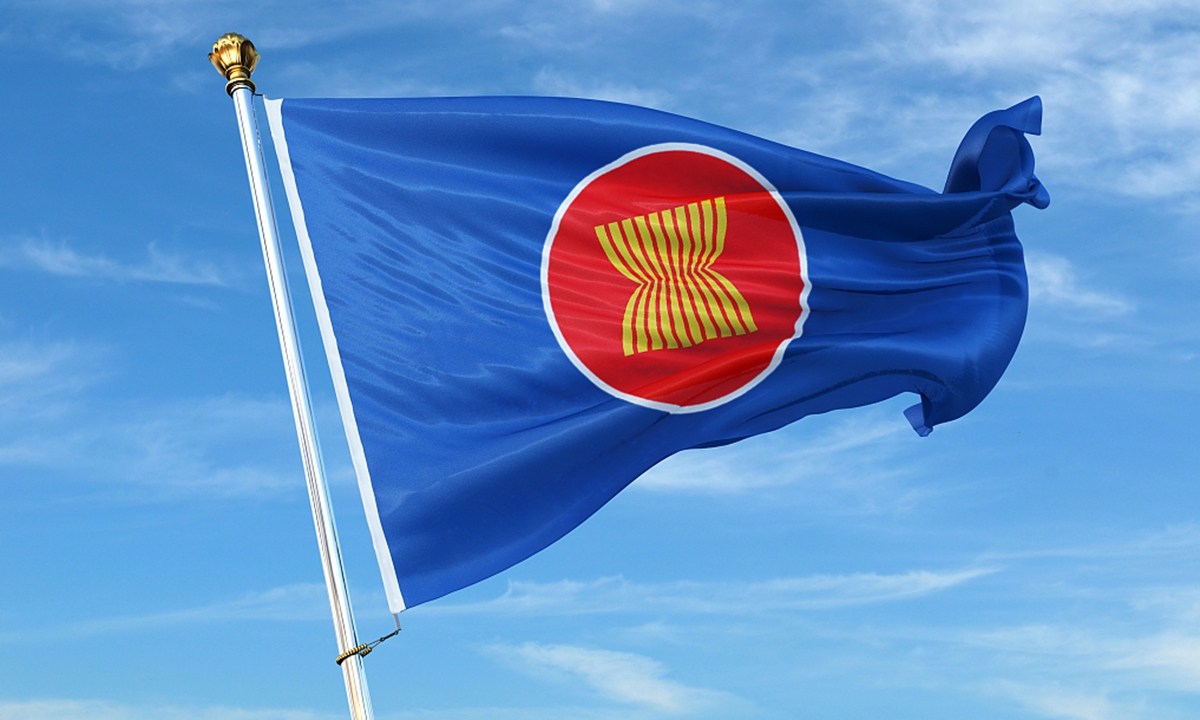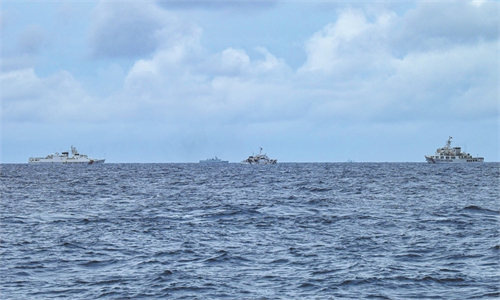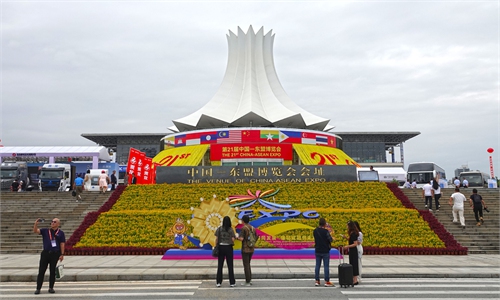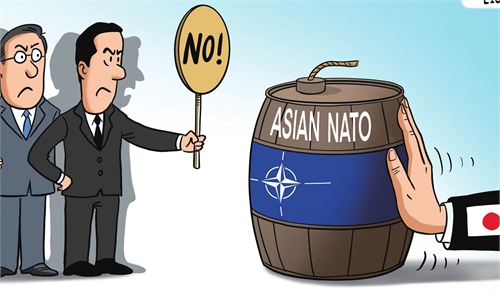
ASEAN flag. Photo: VCG
The 44th and 45th ASEAN Summits and Related Summits are held in Vientiane, Laos, from Tuesday to Friday. As the host, Laos set the theme this year as "ASEAN: Enhancing Connectivity and Resilience." The theme of each annual summit often runs through the discussions and the speeches of national leaders during the series of meetings.
Certainly, there are often individual countries that attempt to involve topics with obvious geopolitical implications. For example, in an editorial published last week, Indonesia's major media The Jakarta Post warned Japan's new Prime Minister Shigeru Ishiba against trying to promote his idea of building an Asian NATO during the annual ASEAN summit. It argued that Ishiba's idea would be "considered very offensive" to ASEAN and only "exacerbate tensions in the region."
Contrary to ASEAN's theme of focusing on development, this is apparently why the new Japanese leader was asked to exercise self-restraint at the summits. This also shows once again that ASEAN has its own staunch stance on issues related to regional development and will not be easily swayed by other countries.
The annual theme of the ASEAN Summit, as an essential part of its operation and narrative, generally demonstrates the efforts of the rotating chair country to promote ASEAN integration and community building. It usually also clarifies annual priorities and key areas of cooperation when interpreting the theme. Furthermore, the annual theme generally reflects the common concerns of ASEAN member states.
For example, under this year's annual theme of "Enhancing Connectivity and Resilience," Laos proposed nine priorities to strengthen connectivity, recovery capabilities and growth resilience. These include four areas aimed at strengthening connectivity: integrating and connecting economies; forging an inclusive and sustainable future; transforming for the digital future, and culture and arts; and promoting the role of ASEAN culture and arts for inclusion and sustainability; as well as five areas to enhance resilience: developing strategic plans to implement the ASEAN Community Vision 2045; enhancing ASEAN centrality; promoting environmental cooperation: climate change resilience; women and children: promoting the role of women and children toward the systematic transformation; and health: transforming ASEAN health development resilience in a new context. This is a unanimous expression for ASEAN countries to achieve economic recovery and effectively respond to economic and other traditional and non-traditional security issues in the face of drastic changes in the international and regional situation.
The ASEAN's annual theme for 2024 is a continuation of the series of themes adopted by ASEAN in recent years. Since at least 2017, the annual themes set by the rotating chair countries have generally followed a similar tone such as "Partnering for Change, Engaging the World," "Resilience and Innovation," and "We Care, We Prepare, We Prosper." These themes reflect ASEAN's consistent focus on its regional development priorities and key areas of cooperation.
Such a focus reflects two features of ASEAN's cooperation: First, as the regional and global landscape is undergoing rapid and profound changes, with a new wave of technological revolution sweeping across the world, ASEAN needs to embrace these changes and adopt innovative approaches to adapt to or address them.
Second, ASEAN's resilience and its centrality in the region are crucial for navigating changes and challenges, and this requires sustainable economic development as a foundation. Thus, ASEAN must work together to manage its relations with major dialogue partners in a balanced and innovative manner, ensuring that its primary focus remains on development-related issues.
It is evident that from the perspective of ASEAN's community-building goals and needs, regional security and stability, as well as economic recovery and prosperous development, define the bloc's core values. For this reason, proposals like an "Asian NATO" are fundamentally at odds with ASEAN's aspirations.
Today, ASEAN has become the third-largest economy in Asia, behind only China and Japan, and ranks fifth globally. When engaging with other countries, ASEAN primarily seeks to position itself as a trusted trade partner, rather than a military ally. In 2019, the 34th ASEAN Summit adopted the "ASEAN Outlook on the Indo-Pacific," which articulated ASEAN's view of the region, highlighting its closely integrated and interconnected nature, emphasizing ASEAN's centrality in the region, and placing a strong emphasis on dialogue, cooperation and shared development. This shows that ASEAN's unwavering focus on development is particularly valuable.
The author is the vice dean of the ASEAN College at Guangxi Minzu University. opinion@globaltimes.com.cn



